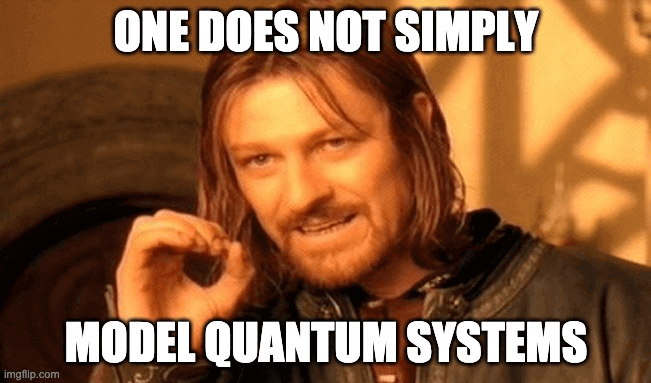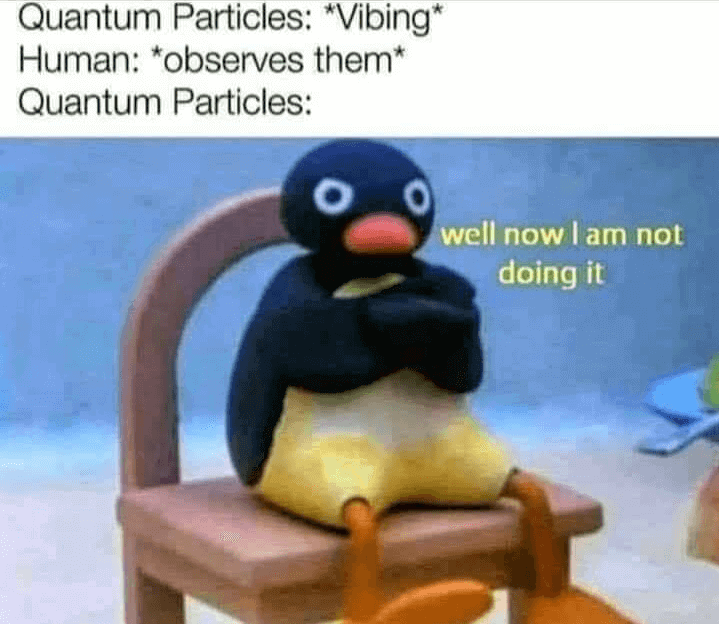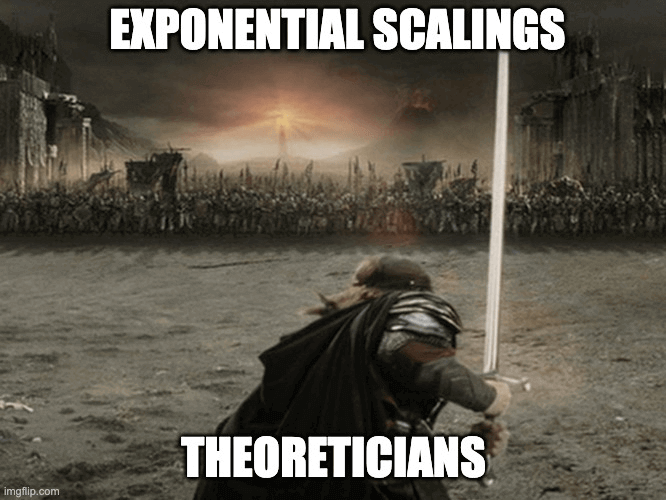What is my research about? Let me start from afar!
We want to build a quantum computer. Why bother? Well, would you like to be able to easily design enzymes making plastic degrade safer and faster? Or to speed up drug design by orders of magnitude? Or to engineer materials which are durable, light, eco-friendly, and cheap at the same time? I believe these are rhetorical questions, and the answer is clearly “yes”. But what’s the catch? Can’t we do all this already?
Not so good. Undoubtedly, the fields of material design and biotechnology have made enormous progress over the last half century, but it would be an overstatement to say that we know how to accurately and efficiently model any microscopic system. The problem is that the laws of our world of big and chunky things (also known as the laws of classical physics) cannot be used to describe microscopic systems. To deal with them one should resort to other laws — laws of quantum physics. And this is where problems begin.

An obstacle is annoyingly trivial — we simply cannot fit the full information about any nontrivial quantum system into computers. According to the quantum laws, the number of parameters required to describe N objects scales exponentially with N. It means that a classical attempt to describe a quantum system of N=100 particles (which is not a particularly big one; proteins may include thousands of atoms) would require at least 2100 parameters, which is approximately billion times more than the amount of digitally stored information in the world. Quite a lot, isn’t it?
And this is where quantum computers come into play. The idea behind them is to simulate quantum systems using other quantum systems. You get a handful of particles which you can control very well, you set rules for them to interact, you press the “Start” button — and Nature does everything, you just need to read out the final result.
Are you eager now to build a quantum computer? If so, I assume that the glowing question in your head is “How?”. The good news is you are not alone as scientists all over the world ponder it too. The bad news is the solution won’t be an easy one. It is really, really, really hard to control quantum particles to the desired level of accuracy. They are whimsical, they lose “quantumness” very easily. So far we managed to simultaneously deal with several dozen particles and that required significant effort of placing them in vacuum chambers and cooling down to absolute zero. Unfortunately, for a useful quantum computation we need more. Frustratingly more. Probably, thousands times more.

Can we do something about this? My optimistic answer is yes — otherwise I wouldn’t have been writing this article! A somewhat exotic theory indicates that the solution may be the matter subjected to exotic conditions. In particular, some semiconductors cooled down close to absolute zero and experiencing very strong magnetic fields (you wouldn’t call these conditions ordinary, would you?) may give birth to quantum quasiparticles which allow high degree of control and are way more stable than the ones we rely on now. Isn’t it a match?
It is! But theory is theory, and real life is real life. We don’t know what exactly should be done to achieve the desired regime. And hence experimentalists spend day and night in the labs, desperate to figure out what combination God set for the safe named “Quantum Computing”. It requires a lot of time, it requires a lot of resources, and we can’t be certain they are moving in the right direction.
Can something be done to help them?
Yes! If one could theoretically predict the behaviour of an arbitrary quantum system, we could have virtually performed a lot of experiments and saved tons of time, and money, and experimentalists! But oh, wait. Didn’t Meme 1 say something about this? It did. We have just obtained a classical “chicken-egg problem” — to build a quantum computer ideally we need to have a working quantum computer. Full stop. Sad face. Or is it?
No, it’s not! To break this vicious circle — that is my job! You approximate here, you add a bit of intuition there, you spice it up with magic — and voilà! You have developed a method (albeit not an extremely rigorous one), which saves two labs from starting projects destined to fail.
Surely, there are no guarantees that our efforts will lead to creation of a useful quantum computer, that we won’t spend our lives in vain. But I believe that Meme 3 is where we are — we might not win this battle ourselves, but we are fighting to give Frodo and Sam another bit of time to reach Mount Doom (and I mean experimentalists of course).
